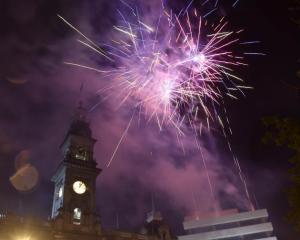
It was clear that the outgoing General Valerii Zaluzhnyi had lost the confidence of the Ukrainian leader, who had come to be wary of the general’s popularity and saw him as a political threat. By refusing to resign when asked by the president last week, Zaluzhnyi had created an untenable situation at the top.
Eight days later, Zaluzhnyi has recognised reality, as Zelenskyy has made it clear he wants a change of leadership after the failed summer counteroffensive. His choice of Colonel General Oleksandr Syrskyi, however, at present commander of land forces, is not seen as a radical departure.

"Syrskyi is close to the president", Oleksiy Goncharenko, a Ukrainian opposition MP close to Zaluzhnyi, said.
"And the most important thing for Zelenskyy is that he thinks that Syrskyi is absolutely not a political person. That is his most valuable characteristic"
While Zaluzhnyi came of age as Ukraine became independent, Syrskyi, at 58, is eight years older and was trained at the Higher Military Command school in Moscow. But he has lived in Ukraine since the 1980s and was critical in its defence in the early phases of the war.
Syrskyi was responsible for defending Kyiv, organising the defences of the capital into an inner and outer ring in the dramatic weeks of the war. The outer ring largely held, helped at a critical moment by a decision to blow dams of the Irpin River northwest of the capital, flooding ground that prevented the Russian advance.

Speaking to The Guardian a year later, Syrskyi described last-ditch defence as "an example of what I said about careful planning", highlighting the fact that Ukrainians had understood that the river, unusually, flowed away from the reservoir north of the capital and could be turned into an impassable obstacle at a village called Moshchun.
"So, realising that we were outnumbered at Moshchun, we made a small opening in the upper part of the dam. We used the features of the landscape. We raised the sluices and flooded the entire area in front of Moshchun that had been occupied by the enemy", Syrskyi said.
Subsequently, however, Syrskyi was involved in a failed attempt last summer to retake Bakhmut on the eastern front, an effort that drew criticism from the United States as a distraction from what Washington believed: that Ukraine’s resources should have concentrated on achieving a breakthrough in the south.
Ukrainian soldiers generally remained supportive of Zaluzhnyi, who cultivated a following among the Azov brigade and other nationalist forces — while there is greater scepticism of Syrskyi. One critic described him as "very Soviet thinking" and another as a soldier more willing to tolerate higher casualties, which may affect Kyiv’s efforts to mobilise more forces.
Allies of the new commander in chief, however, emphasise his dedication. One told The Guardian last year "he didn’t sleep for three days" after the Russian invasion — and the general himself, muscled from regular workouts, says he sleeps only "four and a-half hours a night", rising at 5.20am to do an hour of exercise.
During the autumn, once it became clear the summer counteroffensive had failed to achieve a breakthrough, it was Zaluzhnyi who warned that the war had become a "stalemate" — a remark that irritated Zelenskyy who believed the comment was both unduly negative and straying into political territory belonging to himself.
Syrskyi is a notably more low-key figure.
"The army is outside of politics", he told The Economist in December 2022, amid another bout of speculation that Zaluzhnyi might be replaced.
But there is no obvious alternative military strategy available when Ukraine’s central problem is persuading US Republicans to unblock $US61 billion ($NZ99b) worth of military aid.
On the battlefield, Ukraine is short of a range of critical munitions, most notably artillery. Russia is firing an estimated 10,000 shells a day, five times more than Ukraine, and, until the challenges of industrial production are solved, Kyiv is likely to be on the defensive, hoping that Moscow will gradually exhaust itself.
As a student of history, Syrskyi is not likely to be short of ideas on how to respond. Last June, the general argued the essentials of warfare had remained unchanged throughout the ages, even if modern weaponry was far more sophisticated.
He said: "When you read about the battle of Cannae, between Hannibal and the Romans [in 216BC], the principles at work are the same: flanking the enemy, surrounding the enemy, concentrating the central effort at the enemy’s weakest point of defence, the need to study the enemy carefully"
— Guardian News & Media










